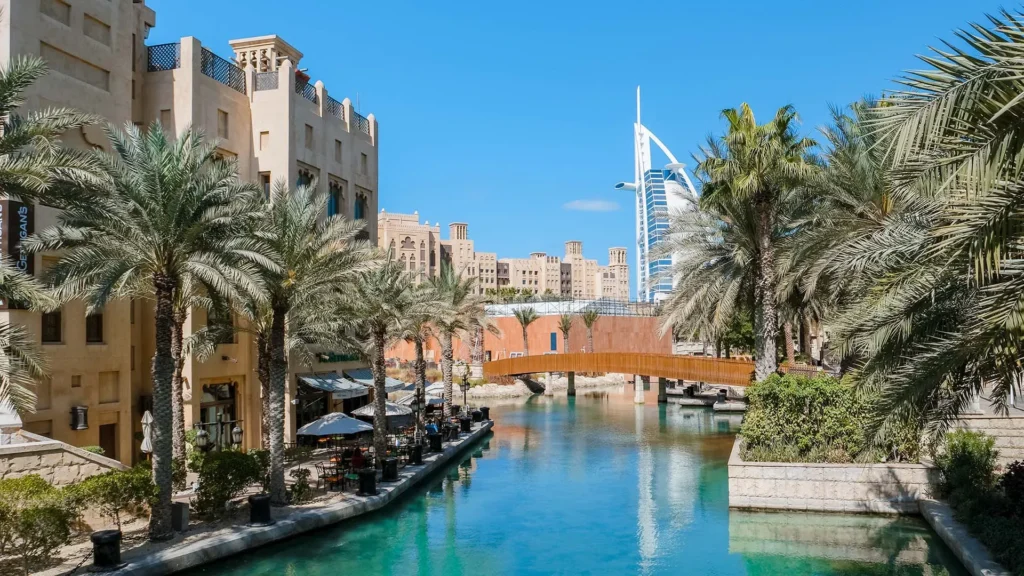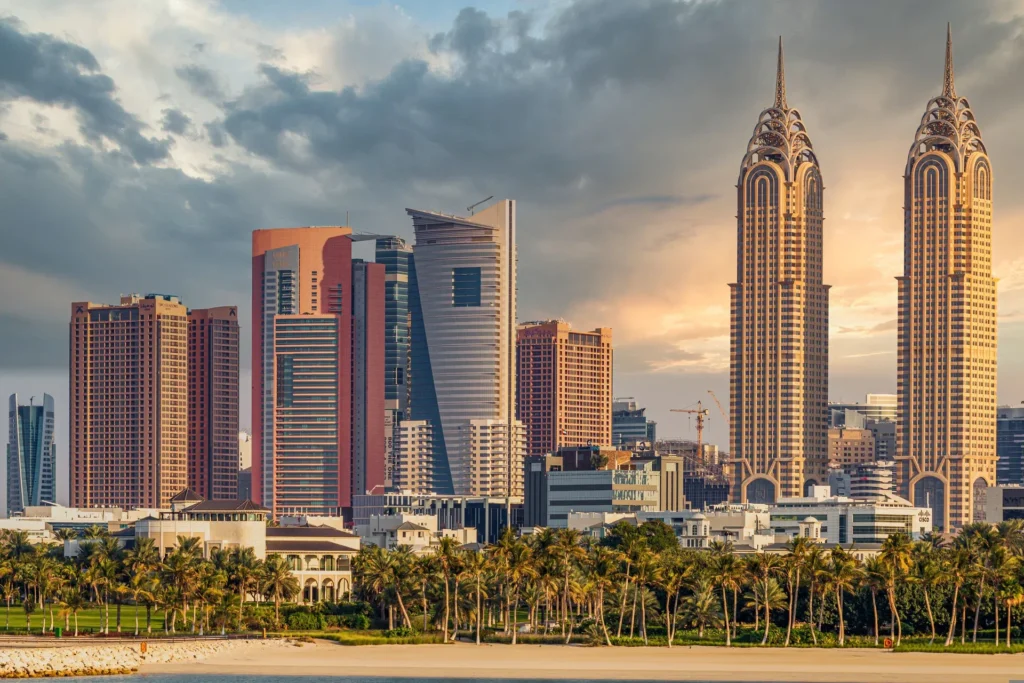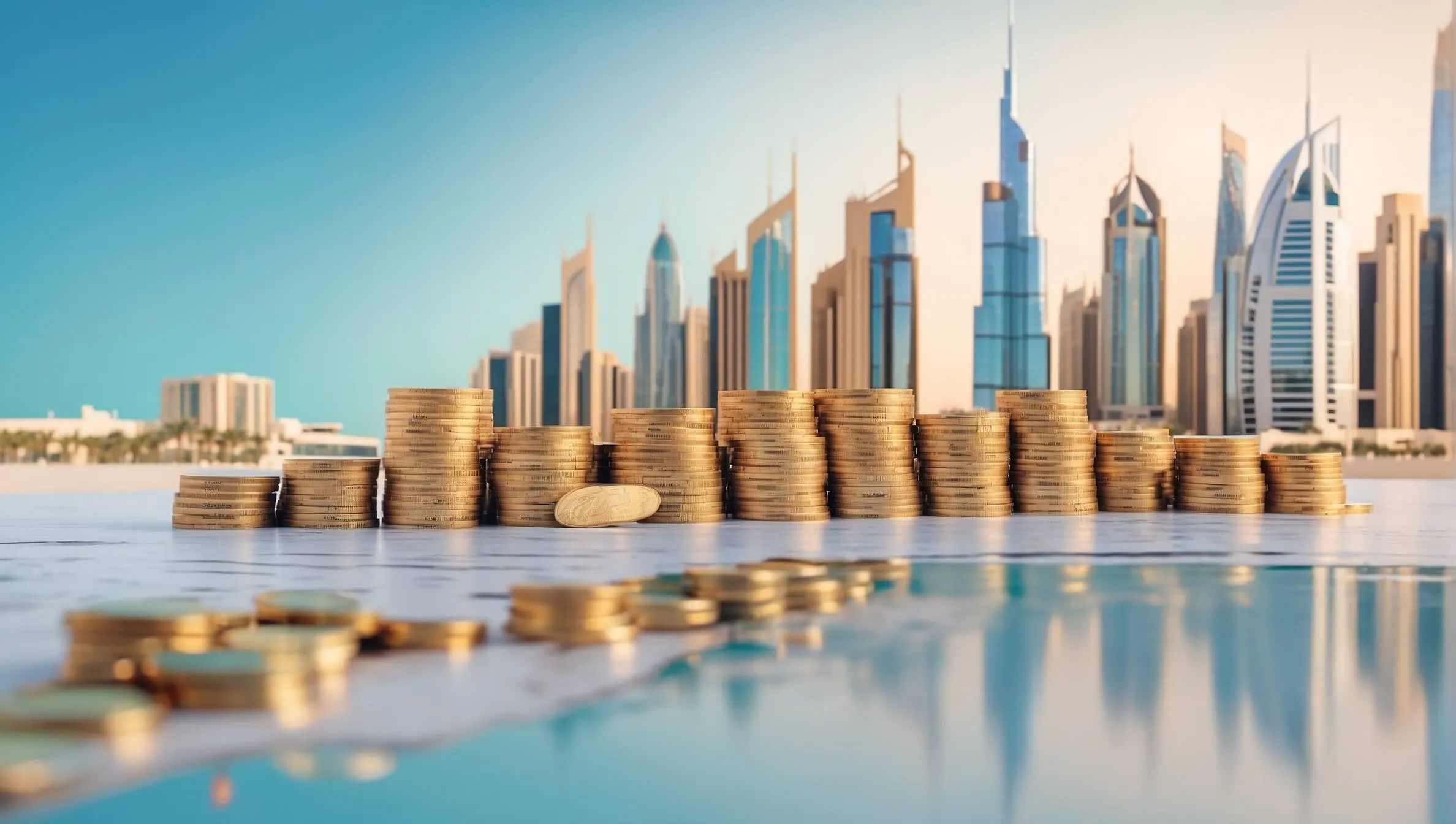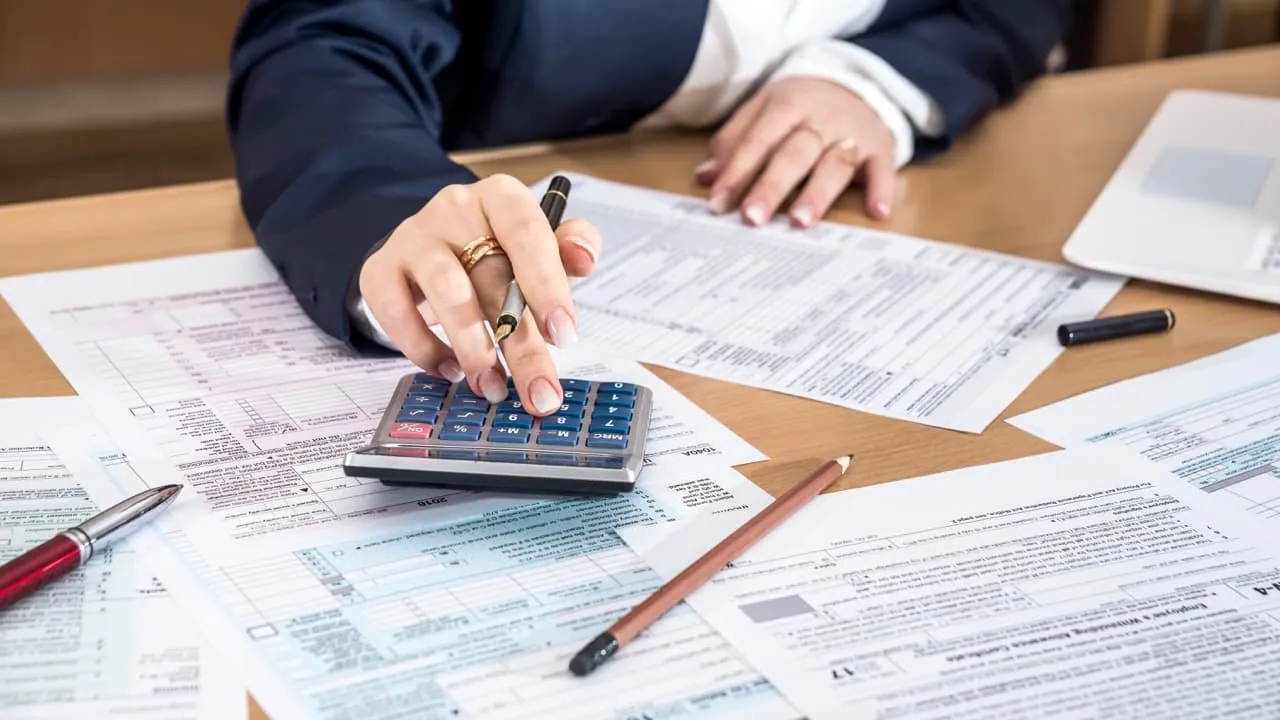The real estate market in the UAE is marked by stability and constant growth. It’s evidenced by several key facts. In 2021, during a severe global crisis, the Dubai Land Department reported transactions totaling $82 billion. By 2023, apartment prices increased by 35%, while land prices rose by 13%. In the last decade, property values in the UAE have grown 1.5 times, with the local currency (the dirham) remaining stable, and property taxes in the Emirates are minimal.
These factors highlight the appeal of real estate investment for foreigners, offering income opportunities both from reselling properties and leasing them out. Tourism also continues to thrive, with the number of tourists in this luxurious country growing annually. Dubai alone hosted 17 million visitors in 2023. There is also a widespread belief that there are no property taxes in the UAE. While this isn’t entirely accurate, as there are some fees, there are also tax benefits. To help you calculate potential returns, specialists at Dynasty Business Adviser explain the fees that non-residents may need to pay.
What taxes apply when buying property in Dubai and the UAE?

Each year, dozens or even hundreds of new properties are built in Dubai. There are no annual taxes on property ownership. Unlike in European countries, there is also no capital gains tax. For example, foreign property sellers pay between 19% and 23% in Spain, 19% in France (plus 17.5% in social contributions), and up to 25% in Germany if the property is sold within 10 years of purchase. However, other fees do apply in the Emirates.
Real estate purchase tax in Dubai
When buying property in Dubai or the UAE, buyers face minimal fees. There is no direct property tax for non-residents in Dubai. The primary expenses include:
| Expense Type | Description |
|---|---|
| Registration fee (Land Department Fee) | 4% of the property value is paid upon registration with the Dubai Land Department (DLD). Typically, this cost is split equally between the buyer and the developer or seller for secondary market purchases. |
| Administrative fees | For apartments, 540 AED (~150 USD); for land plots, 120 AED (~11 USD). |
| Registration fee | A fixed fee of 2,000 AED (~550 USD) for properties up to 500,000 AED and 4,000 AED (~1,100 USD) for properties over 500,000 AED, plus 5% VAT. |
| VAT (value-added tax) | VAT is 0% on residential property purchases, resale properties, and land. However, a 5% VAT applies to commercial property transactions. |
| Mortgage fee | For purchases with financing, there is a 0.25% fee on the loan amount. |
| Title deed issuance fee | Approximately 70 USD. This certificate, issued within three days of filing in Dubai Court, confirms that the transaction was conducted legally. |
Additional costs to consider include agent services and property maintenance fees.
Agent fees and registration charges
It is not possible to complete a property transaction in Dubai without a real estate agent. So, the buyer will need to pay agency commissions, typically 2%, plus 5% VAT.
Property maintenance expenses
| Expense type | Description |
|---|---|
| Territory maintenance | Dubai streets are well-kept, with garbage collection, lawn care, tree and flower planting, pool cleaning, and lighting provided. These services are covered by owner fees, generally around 5 USD per square meter. |
| Utilities | Since people cannot do without light and water, utility bills for water and electricity are to be paid. Gas is rarely piped and is typically provided in cylinders. The UAE promotes resource conservation with lower rates for reduced consumption. During peak summer months, however, air conditioning bills alone can reach up to 100 USD due to temperatures exceeding 45°C. |
| Communication | Telephone, internet, and television services cost around 220 USD per month. |
| Insurance | Although property insurance is voluntary, it is mandatory for mortgage-financed properties. Insurance premiums cost around 100 USD per year. |
Property rental tax

There are no direct taxes on rental income in Dubai, making it attractive for landlords. However, there are certain fees (municipal taxes) associated with renting, which are relatively low and are paid by the tenant:
- For residential rentals a 5% tax on the annual rent applies.
- For commercial properties the rental tax is 10% of the annual rent.
Utility payments are always the tenant’s responsibility and can be made online through the Dubai Electricity and Water Authority (DEWA).
Tax benefits for property owners
Owning property in Dubai offers foreigners a range of benefits similar to those available to UAE citizens:
- There are no direct property taxes on purchases in Dubai: no annual tax, no capital gains tax, and no rental income tax.
- Foreign property owners can qualify for a residency visa. To qualify, the investment must be at least 750,000 AED (approximately 204,000 USD) for a 3-year visa. For property valued at 2 million AED (around 545,000 USD), owners may be eligible for a 10-year Golden Visa. Upon obtaining a residency visa, investors or business owners gain UAE government protection, including confidentiality of bank transactions and exemption from double taxation. UAE residency also grants the right to conduct business, pursue education, work, and enter and exit the country freely.
- Online transactions. Dubai’s Land Department allows property purchases and sales to be conducted remotely. This means potential owners do not need to travel or incur hotel expenses during the property selection and purchase process. They can arrive in the UAE as owners.
Real estate tax payment procedure in Dubai
All applicable fees can be paid at the time of the transaction. Payment is made via bank transfer or through the developer (for primary market purchases). The full amount must be settled before finalizing the transaction and registering property rights.
Benefits of investing in Dubai real estate for foreigners

Owning property in the Emirates is advantageous for several reasons:
- Geographic location — Dubai’s strategic location serves as a central point connecting Europe, Asia, and Africa.
- Investment-friendly policies — favorable terms are in place for foreigners purchasing real estate.
- Diverse investment options — options range from luxury villas to commercial buildings and apartments.
- Flexible payment plans — convenient installment plans for off-plan properties, with a variety of payment methods available, including cryptocurrency.
- Developed infrastructure — high-quality roads, transportation systems, and social facilities.
- Profitable rental market — strong demand for residential and commercial rentals.
- Stable economy — continued economic growth even in the face of global fluctuations.
- Advanced technology — modern “smart” homes and technologically sophisticated projects.
- Minimal tax obligations — no income tax or capital gains tax.
- Secure investment — stable economy, reliable legal system, and property rights protection. Ownership information in the UAE remains confidential.
Conclusion
This guide has outlined the taxes on property in Dubai, specifically the various fees that need to be paid, as there is no direct tax. Compared to other countries with high standards of living, the UAE offers the most favorable conditions for foreign investors. This is often the primary interest for buyers. However, completing transactions can be challenging due to language barriers and cultural differences. Foreigners are often initially offered low-demand, low-yield properties, which can be difficult to identify without expertise.
To avoid this, it’s essential to work with experienced professionals who are well-versed in both the local market and international laws. Dynasty Business Adviser is here to help. Contact us, and we’ll find you a property without complications and provide comprehensive financial and legal assistance throughout the transaction, including a full assessment of investment potential and tax implications.









